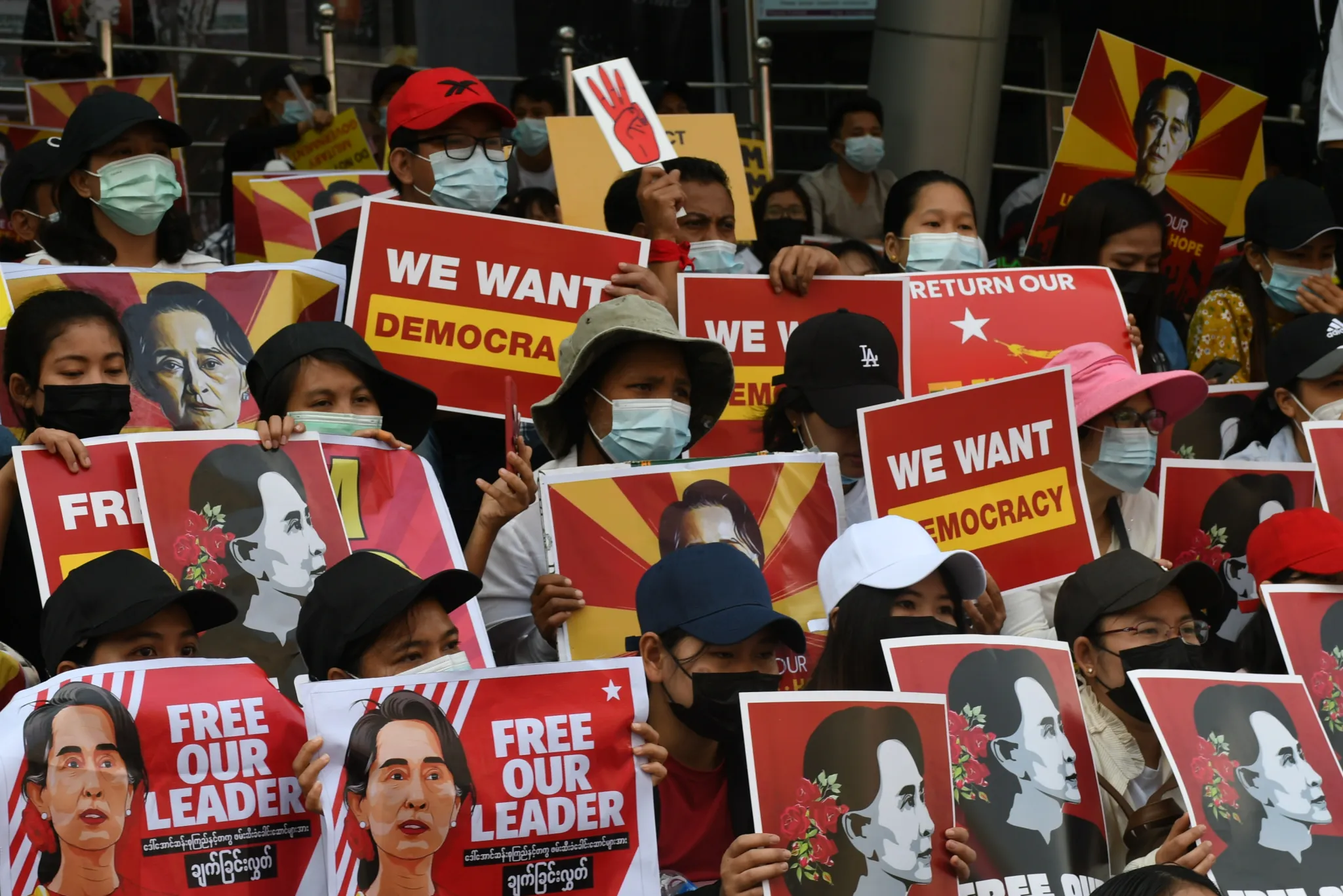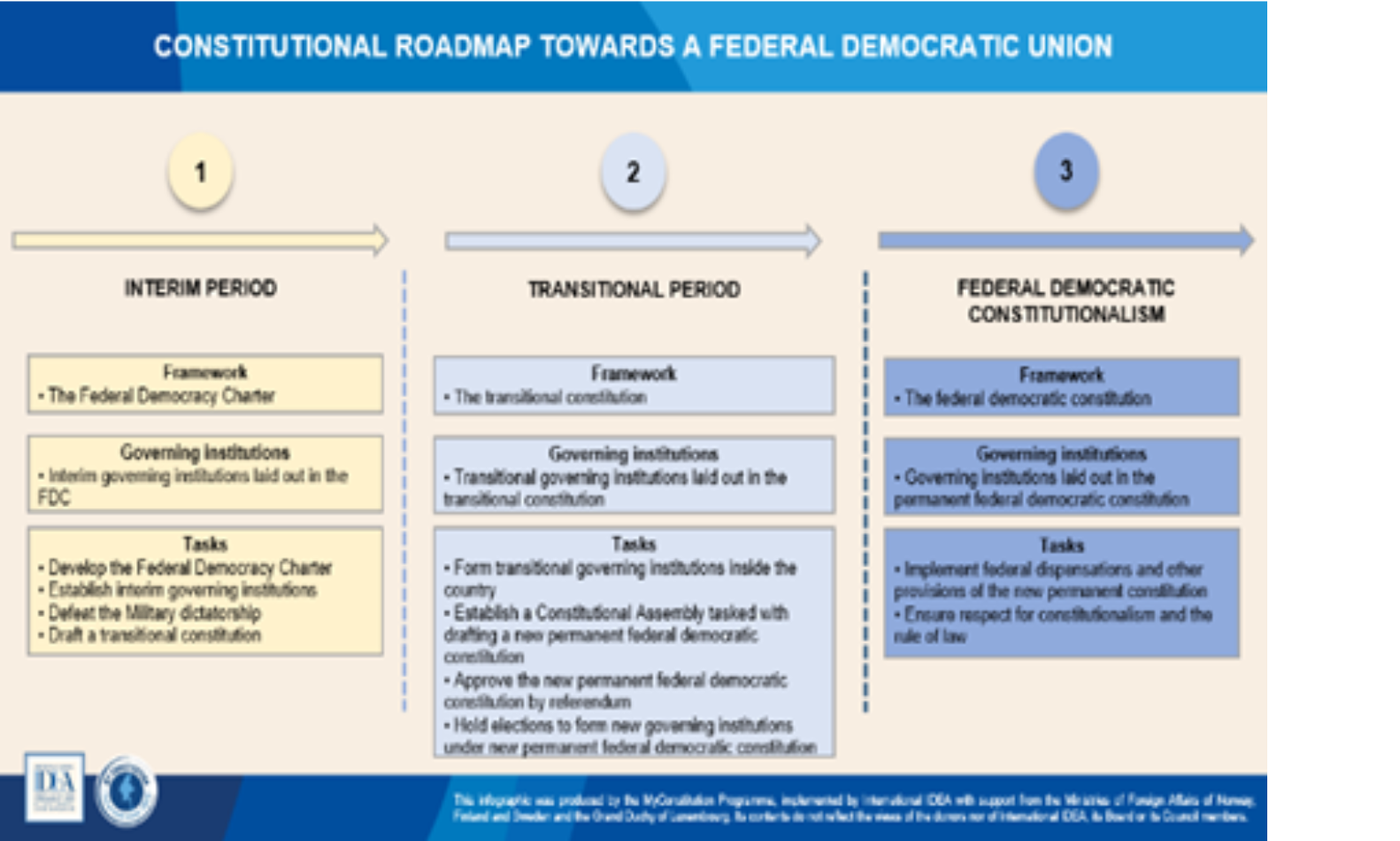Towards the restoration of democracy in Myanmar: Reflections on Democracy Day

On 18 June 2021, the UN General Assembly adopted a Resolution which calls upon the Myanmar armed forces “to respect the will of the people as freely expressed by the results of the general election of 8 November 2020, to end the state of emergency, to respect all human rights of all the people of Myanmar and to allow the sustained democratic transition of Myanmar, including the opening of the democratically elected parliament and by working towards bringing all national institutions, including the armed forces, under a fully inclusive civilian Government that is representative of the will of the people.” It also called upon the Myanmar armed forces “to immediately and unconditionally release President Win Myint, State Counsellor Aung San Suu Kyi and other government officials and politicians and all those who have been arbitrarily detained, charged or arrested.” A year later, not only has the military not fulfilled any of these demands but the plight and struggle of the people of Myanmar have dropped from the global agenda.
The United Nations International Day of Democracy Day provides an opportunity to reflect on the ongoing efforts of and progress made by Myanmar’s legitimate democratic stakeholders to restore democracy in Myanmar.
In reaction to the military coup of 1 February 2021, the people of Myanmar launched an unprecedented protest movement known as the ‘Spring Revolution’, involving millions from all walks of life and communities as part of a civil disobedience movement (CDM). The people clearly expressed that they will not accept the military rule, demand their votes to be respected and have no desire to return to the ‘status quo ante’, instead insisting on full and genuine democracy. The military has responded with unprecedented violence amounting to crimes against humanity, killing 2272 protesters as of 9 September 2022 (AAPP). Central government institutions remain captured by the military, the justice sector and rule of law are in a state of collapse, the large-scale humanitarian crisis continues to escalate and reports of executions and horrific atrocities by the security forces against civilians continue to emerge.
In response to the unconstitutional seizure of power, a group of MPs elected in the 8 November 2020 general elections formed the Committee Representing the Pyidaungsu Hluttaw (CRPH), mandated by 80 percent of all elected MPs to represent and act in the interest of the legitimate legislature. The CRPH, therefore, bases its legitimacy on a direct vote of the people, while numerous elected MPs also participate in state and regional councils and committees. This legal legitimacy continues, even though the 2008 Constitution, under which the November 2020 general elections were held, has become defunct and inapplicable. The National Unity Consultative Council (NUCC) is a broad platform of actors composed of representatives from the CRPH, ethnic resistance organisations, political parties; a broad range of civil society and strike committees; and state-level bodies to agree on the movement’s course of action collectively.
The illegal actions of the military effectively created a constitutional vacuum. A key achievement of the interim Union-level governance institutions is the adoption by the NUCC of the revised Federal Democracy Charter, which was endorsed by a People’s Assembly in January 2022. It outlines the core principles towards building a federal democratic union and publicly binds the stakeholders to credible commitments in pursuing longstanding ethnic minority demands for greater autonomy and a highly decentralized form of federalism but also demands such as civilian control of the security sector, human rights, diversity and inclusion, women’s empowerment, and secularism.
 Crucially, the FDC outlines a political roadmap for the transition period, including the preparation of a Transitional Constitution and the process of drafting and adopting a new permanent constitution as well as constitutions for the constituent units. International IDEA, under its MyConstitution programme, has prepared an analysis of the revised FDC and its prospects . The new permanent Federal Constitution is expected to be adopted by an inclusive Constituent Assembly and possibly a referendum. The FDC promises to deliver what the people of Myanmar have been demanding and yearning for ever since the foundation of independent Burma – peace, equality and justice for all, balanced development and the rule of law delivered by effective, accountable institutions at all levels.
Crucially, the FDC outlines a political roadmap for the transition period, including the preparation of a Transitional Constitution and the process of drafting and adopting a new permanent constitution as well as constitutions for the constituent units. International IDEA, under its MyConstitution programme, has prepared an analysis of the revised FDC and its prospects . The new permanent Federal Constitution is expected to be adopted by an inclusive Constituent Assembly and possibly a referendum. The FDC promises to deliver what the people of Myanmar have been demanding and yearning for ever since the foundation of independent Burma – peace, equality and justice for all, balanced development and the rule of law delivered by effective, accountable institutions at all levels.
Despite disagreements and low awareness about the FDC’s details and its implications among political leaders and the public, the overall commitment by the stakeholders involved seems to be holding. A statement by Acting President Duwa Lashi La referring to the FDC as the “bible” of the democracy movement resonated strongly among participants in the process and reassured partners. Citizens must now be reassured that the interim institutions – the NUCC, the CRPH and the NUG – have an actual strategy to achieve this goal while striving to provide as many services as possible to the people in the interim period.
Based on the Charter and with the backing of the NUCC, the CRPH established the National Unity Government (NUG) as the civilian government's executive arm with a mandate derived from the 2020 elections. Despite the dominance of the NLD in the elected parliament, owing to its electoral landslide victory, the NUG is the most diverse and inclusive government ever established in Myanmar. Key NUG policies include the Rohingya policy, a commitment to replace the discriminatory 1982 citizenship law and the acceptance of the International Criminal Court's jurisdiction for Myanmar, as well as the declaration of a nation-wide self-defence struggle while adhering to human rights and the principles of international humanitarian law. The NUG has made some progress in providing educational and health services, humanitarian assistance, fundraising, and communications. International IDEA carried out a needs and capacity assessment of the NUG, which found that the structures established have proven remarkably resilient and adaptive, but significant capacity needs exist across their operations for policy making, programming, administration, and service delivery. Increasingly, the interim government institutions understand their mutual roles and work against their mandates, with the elected parliament through the CRPH acting as the oversight body of the NUG, the NUCC formulating policy, and the NUG implementing policy at the Union level, with local governance structures, including those established by ethnic armed groups, playing an increasingly important role on the ground. The NUG and CRPH have been making headway in their international outreach, with a growing number of high-level ministerial contacts and meetings. The CRPH is recognized as the parliament of Myanmar by international parliamentary networks and enjoys strong parliamentary solidarity.
Democratic stakeholders have begun the process of designing a new long-term constitutional framework with key features of governance, including democracy, civilian control, and federalism, with the potential to transform the country into a civilian-led, democratic, inclusive, and significantly devolved federal state. Agreement of democratic actors needs to be forged over core state-building issues such as the form of government, the electoral system, the appointment of the judiciary, the names, numbers, and boundaries of federal units, and, notably, arrangements for the transition and implementation period. The new Constitution will set the stage for a monumental and fundamental change agenda with profound implications for how Myanmar is governed, how the people of Myanmar are represented, how they interact with the state, and how they relate to each other.
At a briefing to International IDEA Member States at the IDEA Permanent Observer Office in New York in March 2022, IDEA Secretary-General Kevin Casas Zamora reaffirmed IDEA’s commitment to support the restoration of democracy in Myanmar. In July, International IDEA, in its Statement, condemned the extra-legal executions of four well-known democracy defenders by the military and called on the global community to work towards the fulfilment of the 2021 Resolution of the UN General Assembly.
The progress made by Myanmar’s interim government institutions as captured in the FDC since the coup is remarkable in that their efforts represent an unprecedented ability of a broad set of democratic stakeholders to find a compromise over difficult questions, and they should be supported by anyone wishing to see a return to democratic governance in Myanmar.
International IDEA provides assistance to the restoration of constitutional democracy in Myanmar through its MyConstitution programme, which is currently based in Stockholm and funded by the governments of Sweden, Norway, Finland, and Luxembourg.





